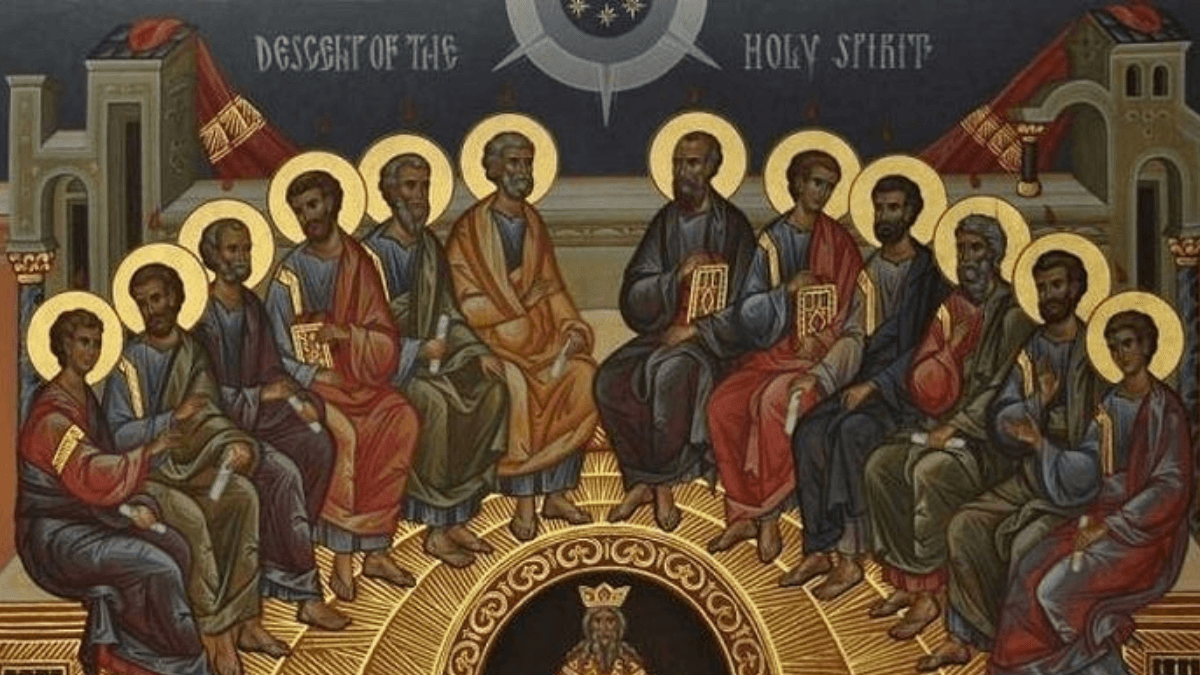On the Back Porch
Reading, pondering and studying God’s Word is sometimes best done “on the back porch.” Each week we will try to offer something for you and your “back porch time.”

Pentecost

John's Pentecost
The first reading for Pentecost Sunday is the account from Acts 2 so familiar to every Christian. Luke’s account is a very public event compared to the very private Johannine account. The Lucan account occurs 50 days after the Resurrection. The Johannine account occurs on the evening of the same day as the Resurrection.
Why the difference? Some scholars defend the basic historicity of the entire Lucan narrative; others conclude that it is essentially Luke’s theological attempt to explain the coming of the Spirit, not an historical account of actual events. Some, holding to the historicity of the Lucan account in Acts 2, hold that John’s account is symbolic only. The Second Council of Constantinople (AD 533) condemned the view of Theodore of Mopsuestia that Jesus did not really give the Spirit on that Easter evening but acted only figuratively and by way of promise. Some, like John Chrysostom, held that the giving of the purpose was for one particular gift or another; others have said that Easter’s coming of the Spirit is personal while Pentecost is ecclesial or missionary. And another set of scholars posit a narrower coming of the Spirit targeting special gifts intended for specific ministry (e.g., the forgiveness) versus a more general coming of the Spirit as a blessing and empowerment for the larger Johannine ministry of discipleship: love and holding to the commandments of Jesus. Some simply conjecture that since John is not overly concerned about date/setting but rather the theological implications, that the Johannine account is the same event – John has simply re-located the events.
The Roman Catholic view coincides with its theological sense of “both-and”. In a sense the very order of the Readings for Pentecost Sunday (Year A) outlines the sense of “both-and” as follows:
- Acts 2:1-11: the general coming of the Spirit
- 1 Corinthians 12:3-7, 12-13: the variety of gifts given – personal, ecclesial, missionary and more
- John 20:19-23: the gifts given for specific ministry, e.g., continuation of the priesthood of Jesus is those that the community raises up for that particular ministry – in this case, the Catholic tradition sees the Sacrament of Reconciliation given to particular ministers to celebrate in the name of the community
There is a lot more to glean from this Sunday’s Gospel
Royal Priesthood
The second video is video #4-of-5 videos covering the final verse in the second reading for the 5th Sunday in Easter (Year A). The verse simply states: “You are ‘a chosen race, a royal priesthood, a holy nation, a people of his own, so that you may announce the praises’ of him.” (1 Peter 4:9) The expression is taken from Exodus 19:6 and Isaiah 61:6 – and echoed in Revelation 1:6 and 20:6.) Simple, yet containing such depth. Specifically we will look at the biblical idea of a “royal priesthood.”
Previous videos in the series